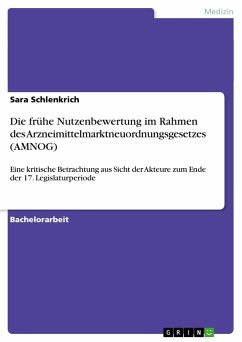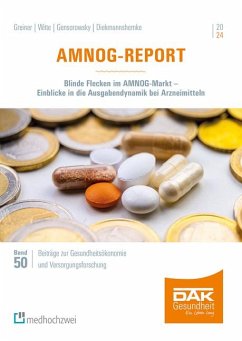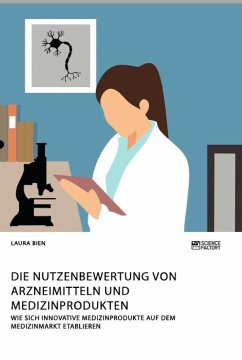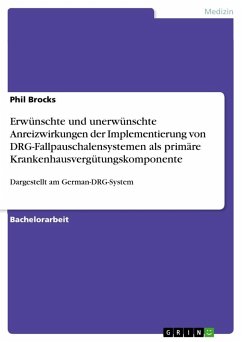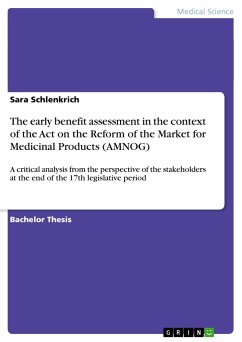
The early benefit assessment in the context of the Act on the Reform of the Market for Medicinal Products (AMNOG)
A critical analysis from the perspective of the stakeholders at the end of the 17th legislative period

PAYBACK Punkte
0 °P sammeln!
Bachelor Thesis from the year 2013 in the subject Health - Miscellaneous, grade: 1,4, Neisse University Görlitz, course: V282129, language: English, abstract: The Act on the Reform of the Market for Medicinal Products, which entered into force on the 1st of January 2011, brought about a fundamental change in the balance of power on the pharmaceutical market. This thesis therefore sets out to answer the following question: What impact does the early benefit assessment in the context of the Act on the Reform of the Market for Medicinal Products have on the stakeholders of the healthcare system?...
Bachelor Thesis from the year 2013 in the subject Health - Miscellaneous, grade: 1,4, Neisse University Görlitz, course: V282129, language: English, abstract: The Act on the Reform of the Market for Medicinal Products, which entered into force on the 1st of January 2011, brought about a fundamental change in the balance of power on the pharmaceutical market. This thesis therefore sets out to answer the following question: What impact does the early benefit assessment in the context of the Act on the Reform of the Market for Medicinal Products have on the stakeholders of the healthcare system?To answer this question, this work first presents the theoretical foundations of the law, of the early benefit assessment and the bodies involved. It then takes stock of the decisions taken to date before describing the impact on the selected stakeholders.The following findings were reached: As the representative of the statutory health insurance funds, the Central Federal Association of Statutory Health Insurance Funds has gained in power and now decides, as a member of the Federal Joint Committee, on the added benefit of a drug and, depending on this decision, also on the future reimbursement rate. Pharmaceutical companies, however, are losing clout and must comply with the guidelines and assessments of the early benefit assessment. Patients stand to gain and lose out from the early benefit assessment. They are the ones who are ultimately dependent on the medicinal product and its improvement and benefit from a proven benefit. However, they have no say in the early benefit assessment procedure.




